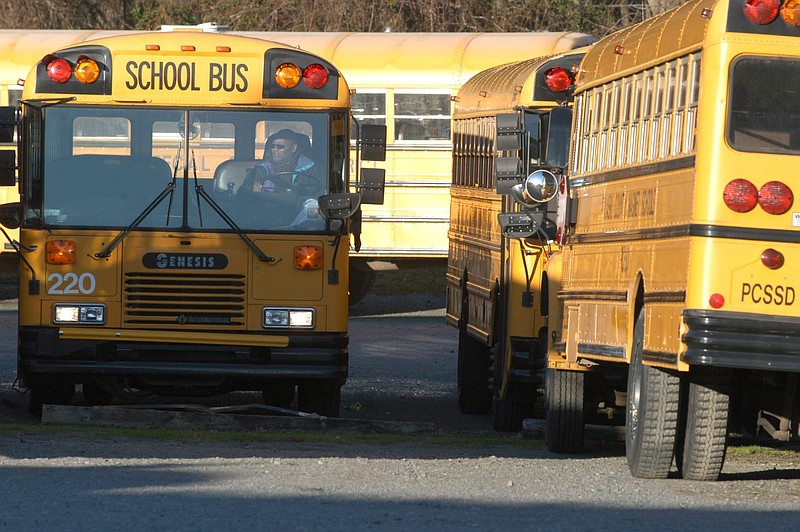The School Board for the Pulaski County Special School District on Wednesday voted 5-0 to adopt a teacher salary schedule for the 2023-2024 school year to comply with the new Arkansas LEARNS Act.
At a special meeting, the board approved the salary plan that provides $50,000 -- as required by Act 237 of 2023 -- to all state-certified educators who currently earn less than that, and a $2,000 increase to the salaries of those already making the $50,000.
Additionally the newly approved plan for the coming year will:
Advance eligible employees a step on the schedule for their additional year of work experience and/or attainment of additional college credit hours.
Add an 18th step to the schedule, giving some 367 certified, veteran employees who have "topped-out" on their salaries after 17 years of district work a way to receive an additional $850.
The salary schedule is expected to cost the 12,000-student district about $1.6 million more than the $4.7 million that the state will provide to the district to fund the LEARNS Act salary requirements.
In response to questions from board members, Superintendent Charles McNulty and district treasurer Jacqueline Rowlett said they anticipate budget cuts in some of the district's departments -- but they offered assurances that the district will have the money for the salary plan without putting the district at risk of being categorized by the state as fiscally distressed.
An anticipated increase in property tax revenues as well as an increase in state aid as the result of a 500-student enrollment gain this year will help offset the salary expenses, Rowlett said.
Additionally, the district will not have to make some of the heavy maintenance equipment and program purchases that were made this year, freeing money for salary expenses, she said.
The district's current starting salary is $40,000.
The new salary schedule flattens salaries or eliminates differentiation among salaries for less experienced and less educated teachers.
For example, teachers with just a bachelor's degree and up to 14 years of experience will make $50,000 a year. A teacher with 15 years of experience will earn $50,096 in the coming year. A teacher with a master's degree and up to seven years of experience will also earn $50,000 with no variation between the years until the eighth year and beyond.
The board had considered two other less expensive salary plans before selecting "Proposal B" that was the preferred option of the district's Personnel Policies Committee for certified staff.
Brenda Robinson, chairman of the committee, thanked the board "from the bottom of my heart" for its decision.
Proposal A was identical to Proposal B minus the new step 18. The Proposal A would cost the district $1.2 million more than the $4.7 million provided by the state.
A third plan -- a freeze proposal -- called for raising the salaries to $50,000 for those earning less than that and distributing $2,000 to those already making that amount, without incorporating the $2,000 into the salary schedule. That plan would cost the district an additional $800,000 above the state LEARNS Act money.
The freeze proposal would keep every teacher at their current step on the salary schedule with no advancement for an extra year of experience or attainment of education credits.
Arkansas lawmakers earlier this year adopted the 145-page Arkansas LEARNS Act that Gov. Sarah Huckabee Sanders had proposed as a way to revamp pre-kindergarten through 12th grade education.
In addition to the salary requirements, Sanders' signature law authorizes the establishment of transformation contracts between poorly performing public school districts and third-party organizations such as charter schools.
It expands over the next three school years the use of taxpayer money for private school tuition and supplies, requires the retention of some third-graders who struggle to read, mandates 75 hours of community service as a requirement for high school graduation and eliminates the cap on the number of open-enrollment charter schools that can operate in the state.
It also repealed the Teacher Fair Dismissal Act and the Public Employees Fair Hearing Act.
LEARNS stands for literacy, empowerment, accountability, readiness, networking and safety.
